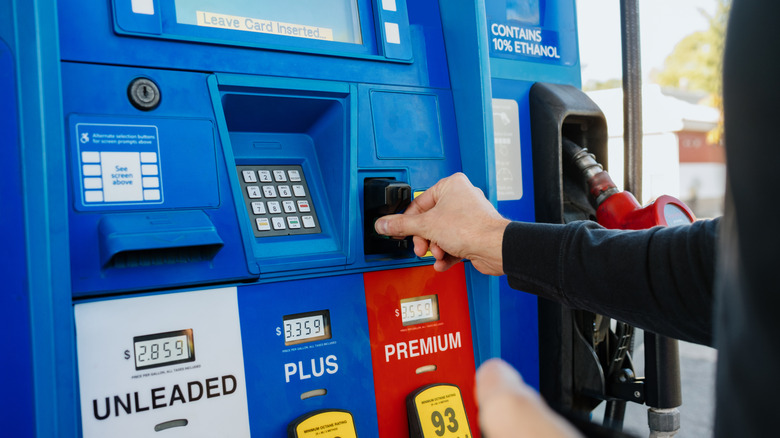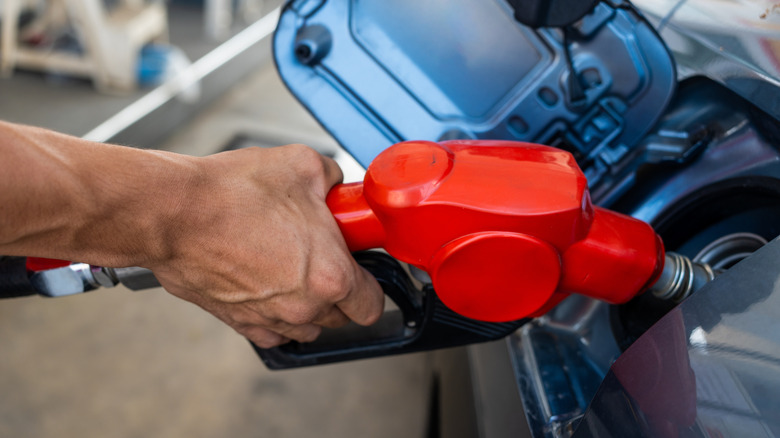What Region In America Tends To Have The Cheapest Gas Prices (And Is There A Reason Why?)
We can probably all agree that we're paying a lot more than we'd like to for gas. According to the Census Bureau, almost 70% of Americans drive to work alone. Given those numbers, it's not surprising that gas prices are something many Americans keep a close eye on. While electric vehicles (EVs) and plug-in hybrid vehicles (PHEVs) have made inroads in the U.S. market, the vast majority of Americans continue to drive gasoline-powered cars. If you're like many people, when prices are high, you employ strategies like filling your car up on the cheapest days to buy gas.
However, if you've ever gone on a cross-country road trip or even traveled to another part of the country for business or pleasure, you've probably noticed something interesting — gas prices vary widely depending on where you are. If you live on the West Coast, driving through the Gulf Coast might leave you feeling green with envy and scratching your head when you see that, in many cases, gas is more than a dollar cheaper than what you're used to paying. The cheapest gas prices in the country are found in the Gulf Coast region for several reasons, including lower state gas taxes, proximity to major refineries, and shorter supply lines.
The Gulf Coast region consistently report the lowest gas prices
Just like some states tend to have cheaper diesel prices for a variety of reasons, the same is true for gas prices. When it comes to cheap gas, the Gulf Coast region, which includes New Mexico, Texas, Arkansas, Louisiana, Mississippi, and Alabama, consistently reports lower gas prices than the rest of the nation. For example, according to AAA, Mississippi recently posted an average price of $2.67 per gallon, while Texas averaged $2.72, both well below the national average of $3.15. There are several factors that come into play to keep gas prices low in these states.
One reason you'll find lower gas prices in the Gulf Coast region is that these states are located closer to major oil refineries and pipelines than other parts of the country. Because of this proximity, the fuel doesn't have to travel as far, which keeps transportation costs down. State taxes also contribute to the cheaper prices you see in some states. Wherever you live, you'll pay 18.3 cents per gallon in federal taxes on gasoline. However, state taxes vary significantly from one part of the country to another. If you're buying gas in California, you're going to pay 68.1 cents per gallon in state taxes. In contrast, someone in Mississippi pays 18.4 cents per gallon in state taxes when they fill up their tank.
Your state's environmental programs can also push up the price you pay for gasoline. For example, your state may require gasoline be reformulated to include additives that cut down on pollution. Many states with lower gas prices have less stringent environmental regulations, which helps lower production and distribution expenses. Retail competition is also a factor, with areas that have more gas stations often seeing lower prices due to increased competition among sellers.

